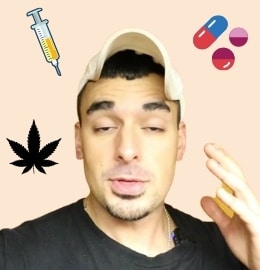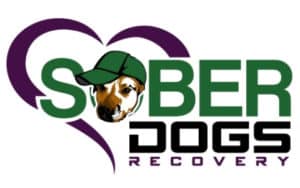Relapse is something I hope people in recovery never have to deal with. But the reality is many addicts will have relapses on their journey towards long-term sobriety. Relapse is by no means required during recovery, but many times its part of the process. Why do some people get sober on their first attempt, and others have multiple relapses? There are multiple theories but no definitive answers. Doctors and scientists around the globe are trying to answer that question.
I have relapsed multiple times during my recovery. I believe it was due to being overly confident which led to me putting my recovery on the back burner. Some people relapse because of a traumatic event. Others because they let their recovery slip, just like I did. Some for no apparent reason at all. What is going through someone’s mind when they relapse? How do they feel when they relapse?
How Do Addicts Feel When They Relapse?
When a person relapses they are often filled with guilt, shame, and remorse. They feel horrible about throwing their sobriety away, as well as a feeling of letting down their family and friends. Addicts do not feel happy about relapsing. During the majority of relapses, the person is not out partying having a good time. They are in a depressed, anxious, miserable state of mind. While in this state of mind the person may feel helpless because they cannot seem to shake these negative feelings. They resort back to the only thing they feel can help them escape these awful feelings, drugs and alcohol.

Many relapses are the result of some traumatic or devastating event in a person’s life, (family death, laid off at work, divorce). They are upset and depressed about the initial event that triggered the relapse. On top of that, they added extreme feelings of helplessness, guilt, and shame into the mix caused by the actual act of relapsing. Once the initial high from the drugs or alcohol wears off the addict will often sink into a further state of depression and misery. This may cause further drug use by the addict in an attempt to escape this downward spiral of depression, shame, and guilt.
A traumatic event is not an essential prerequisite for a relapse. Addicts like myself relapsed due to complacency and boredom. In these cases, the addict may feel substantially worse about the relapse because no specific event triggered it. They feel like a total failure because they could not even stay sober when things in their life seem to be trending upwards.
Mindset Before A Relapse – Emotional Relapse
When I look back now and analyze my thought process the weeks and months leading up to my relapses I can see distinct patterns. At the time I was not aware any of this was going on, I was too caught up in rebuilding my new life. This period of time is called Emotional relapse. This is the first stage of relapse. Emotional relapse can start months before the actual act of getting drunk or high. The signs to watch out for during this stage are:
-
Mood Swings
-
Inconsistency In The Persons Recovery Program
-
Putting Recovery and Mental Health On The Back Burner
-
Anger/ Outbursts
-
Isolation
-
Depression/Anxiety
-
Inconsistency Physical Health (Sleeping Patterns Off, Eating Patterns Off, Exercise Routine Off)
-
Complacency In The Persons Recovery Program
All of these signs were present for me during the weeks leading up to my relapse. I didn’t identify them until it was too late because I was complacent in my recovery program. I thought I had addiction and recovery all figured out. This can be one of the most dangerous mindsets for someone in recovery. Typically during this first stage, the person will still have full intentions of staying sober. The good behaviors and thoughts they have learned at rehabs or 12-step programs will be present and help them stay sober.
As the signs and symptoms above start to slowly pick at the person’s mindset, they will slowly slip into the second phase of relapse – Mental Relapse.
Thought Process During Mental Relapse
Weeks of even months may have gone by with the addict slowly being beaten down by the symptoms of emotional relapse. In their mind, they are searching for ways to fix, heal, or escape these negative feelings. The one thing we always resorted to in the past to escape these feelings – drugs and alcohol – starts to look more appealing.

If we don’t intervene in our thought process at this point it can turn bad in an instant. I remember thinking about various ways I could “get high” without “getting high“. You’re probably saying “WHAT? That doesn’t make any sense”. During the healthy periods of recovery, I knew I couldn’t use any drugs or alcohol. I knew that even a drug that wasn’t my drug of choice could and probably would lead me back to heroin and cocaine.
The problem was, months of emotional relapse put my thinking in a negative place. I started to think about smoking weed. I don’t smoke weed and never really liked smoking weed. In my mind I was saying “It’s just weed. It’s not your drug of choice you can smoke a little bit”. I began to obsess over ways to escape reality without using heroin or cocaine. For an addict like myself no matter what drug I did it was never enough, I always wanted and needed a higher or bigger rush. Therein lies the problem of just “smoking a joint”. After a few times of smoking weed my brain was saying “This isn’t good enough, do the stronger stuff”, and ” You can do some heroin and coke casually just like you smoked weed casually”.
Thought Process During The Physical Relapse Stage
I vividly remember being at this point in my relapses. I had my phone next to me with dozens of people I could call and ask for help but I couldn’t pick that phone up. It was as if something was blocking me from making that call for help. I put my phone on vibrate and drove to my old dealer’s house.
Once my mind was made up, and I decided to use, the motions were almost robotic. I drove straight to my dealer’s house. Counted my money on the drive there. Made a plan to get some needles and other contraband I needed. Finally, I Planned an excuse to tell my family why I would be gone for the rest of the evening. Everything I had worked so hard to avoid, fell back into place in seconds. I had drugs in my hand and was loading up a needle within 20 minutes.
Theres a good saying in AA that encompasses my thoughts very well at this stage:
“I had a head full of AA but a belly full of beer”
As I was driving to the dealer’s house and even during the actual act of getting high all these recovery sayings and thoughts would pop into my head. Weeks of emotional and mental relapse had caused me to drop my guard. This is why it’s essential to have a healthy recovery program. When my recovery program is strong these thoughts enter my head and stay there. They force me to take positive action. When my recovery program is weak, these thoughts go in one ear and out the other.
The First One
In 12-step programs and rehabs, they tell you:
“That first drink or drug is the one that gets you drunk” or “If you don’t pick up that first drink or drug than you can’t get drunk or high”.
I always understood these sayings, but never realized the power of them until my relapse. Right up to the second I was about to get high I had a plan. My plan was to get high, then do one maybe 2 more shots before the end of the night, and be done with it. I only spent $100, I could get high tonight, and be fine tomorrow, no one would know, and I wouldn’t have withdrawals if I only did a little bit.
The second those drugs entered my system it was as if someone hit the restart button on me. Imagine you have a bunch of programs open on your computer and it freezes, you hit CTRL – ALT- DELETE and force a restart. When it reboots everything is lost, and all the programs have shut down. That is exactly how I felt within 5 seconds of getting high.
All the plans I had about only spending $100 dollars and only getting high a few times were gone. Nothing else in the universe existed except more drugs. I ran through the $100 worth of dope in about an hour and was at the ATM taking out $300. Not only was I going to get high many more times that night, but I also started planning on how I could get high in the morning. I spent the next 5 days getting high all day and all night. The only time I was not in an extreme state of depression and shame during these 5 days was the 2 minutes after each shot.
Changing Our Thoughts and Behaviors
How quickly all these old terrible habits came back to me is unbelievable scary. Within seconds of making up my mind to get high everything was second nature and just seemed to be uncontrollable. This is why it’s so important to change our entire thinking around drug and alcohol use. Simply putting down the substance and assuming our lives are going to be great is a fantasy. People in recovery have to work on a daily basis to build up their defenses against a drink or drug.
Working on my thinking and thought process has been a huge part of my recovery. It’s something I practice and work on daily. I know the day will come when I have the irresistible urge to use drugs or alcohol. When it does come I want to be as prepared as I possibly can.
Sources:
https://www.addictionsandrecovery.org/relapse-prevention.htm


